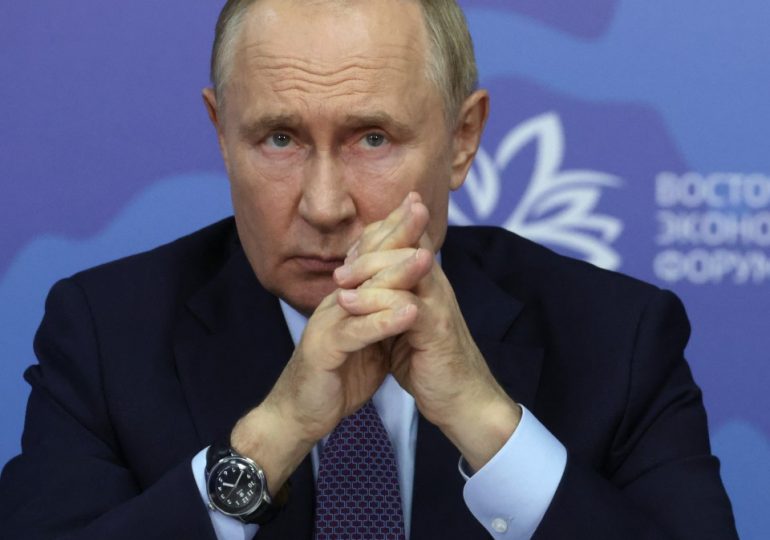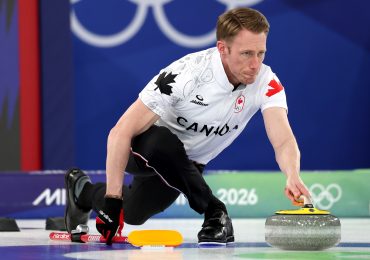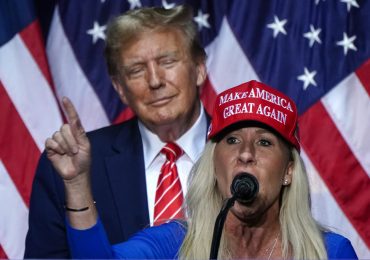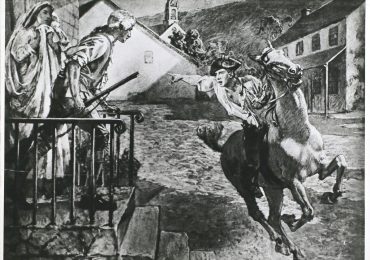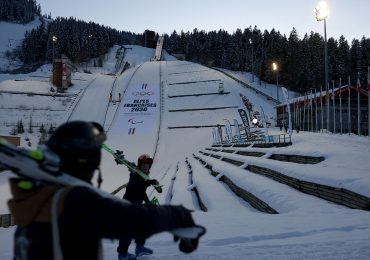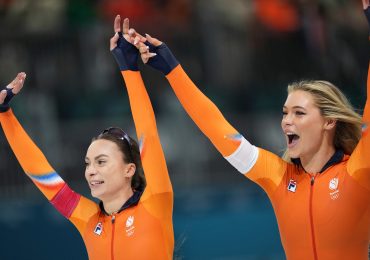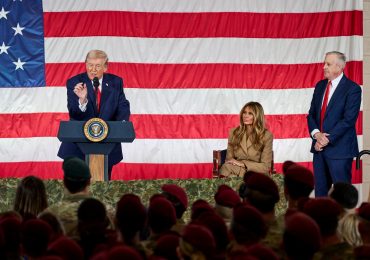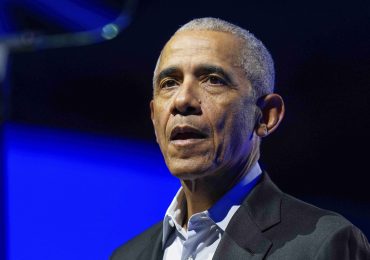VLADIMIR Putin’s reign as president may come to a dramatic end once his oligarch cronies run out of cash, a US ex-general has warned.
Former US Army Commander Lieutenant General Ben Hodges told The Sun how the wealthy Russians supporting Putin could end up turning on the tyrant if he refuses to stop the war in Ukraine.
Putin’s invasion of Ukraine in 2022 led to many of his cronies being placed under strict EU and UK sanctionsAFP
GettyA Ukrainian tank firing in the direction of Russia as Putin’s war continues to have consequences over two and a half years on[/caption]
East2WestA younger Putin with well-known Russian oligarch Roman Abramovich[/caption]
Supplied Former US Army Commander Lieutenant General Ben Hodges has warned Vladimir Putin that his oligarch pals could turn on him[/caption]
At the start of the Russian invasion into Ukraine in 2022 the UK and European Union placed strong sanctions on many of these oligarchs.
This left them with travel bans and their assets frozen meaning many of their international business deals fell into disarray – leaving them out of pocket.
Hodges says these sanctions, which are still in place today, could be a pivotal factor in bringing down Vlad as the tycoons continue to be frustrated by the restrictions.
The ex-Lieutenant General told The Sun: “At some point the oligarchs, the inner circle, have got to get tired of all the restrictions on them, including on their fortunes.
“At some point, they will say ‘I can’t go see my mistress on the Adriatic. I can’t send my kids to school in London anymore or Stanford’.
“Then I think potentially something happens.”
All of the restrictions are expected to remain in place against Putin and his cronies as the devastating war continues to rumble on.
A key way the West can defeat Russia in their rampaging war on Ukraine is to isolate them from the rest of the world, Hodges claims.
The sanctions on oligarchs was seen as a smart ploy to push some of them into going against the Kremlin.
Many of them were forced to battle between sustaining their national identity and supporting pal Putin or condemning the invasion and being axed from Russia.
Hundreds chose to support the dictator’s ruthless land grab as they hid from the West.
But after more than two and a half years since the damning restrictions Putin continues to launch daily attacks on Ukrainian soil.
Hodges says the time is now to keep the pressure on Russia and its rich and powerful individuals.
He said: “We have to isolate Russia diplomatically, economically, politically, and militarily from the rest of the world.
“Then we need to punish them every time they do things.
”The defeat of Russia must be our strategic objective, that means we will do everything necessary to achieve it.”
Putin’s closest oligarch pals
Roman Abramovich, net worth: £7.5billion
The ex-Chelsea football club owner is one of the most well-known Russian oligarchs due to his time in England.
The 57-year-old politician and business mogul was forced to sell off Chelsea in 2022 after being hit with sanctions but he didn’t get any of the proceeds from the sale.
He owns stakes in Russian steel giant Evraz and nickel producer Norilsk Nickel.
Vladimir Potanin, net worth: £19billion
With a worth of an estimated £19billion, Potanin was once regarded as the second richest man in Russia and the 10th wealthiest in the world.
He was on the US Treasury’s list of individuals closely associated with Putin.
After making his money on loans-for-shares in Russia, he now owns Interros.
Interros is a Russian conglomerate with stakes in mining, energy, finance, retail and others sectors.
Gennady Timchenko, net worth: £17.3billion
Worth an estimated £17.3billion, Timchenko, 71, has been a close ally with Putin since the 90s.
He has had his assets frozen and been banned from travelling to Britain due to his connection to the invasion of Ukraine.
Timchenko has links to Russian oil as he co-founded Gunvor, the fourth largest crude oil trader.
The company has since severed ties with the oligarch.
He is a shareholder in Rossiya – one of the Russian banks that Boris Johnson sanctioned when he was the PM.
Vladimir Lisin, net worth: £20billion
Listed on the US Treasury’s Putin list, Lisin, 68, owns Novolipetsk Steel, one of Russia’s largest steel companies.
In 2020, he donated 123 million rubles to help save children with spinal muscular atrophy.
In 2010 he was named as the richest man in Russia.
Boris Rotenberg, net worth: £886million
Another one of the oligarchs to be hit with sanctions by the UK is Boris Rotenberg, 68.
He is worth £886million and was a childhood friend and judo sparring partner of Putin.
He co-owns SMP Bank and has been sanctioned for using his role at the bank to support the Russian government.
Vladimir Litvinenko, net worth: £2.3billion
One of the more familiar names of the Putin era is Vladimir Litvinenko, 69.
He was Putin’s campaign manager, owns shares in Russian chemical company PhosAgro and is the rector of Saint Petersburg Mining University since the 90s.
According to Forbes he is worth around £2.3billion.
Leonid Mikhelson, net worth: £21billion
The 69-year-old Mikhelson is the CEO of Novatek, which is the second largest natural gas producer in Russia.
He is worth around £21billion and is closely associated with Timchenko as well as Putin.
Mikhelson also has a reported 30.6 percent stake in Zao Sibur which is Russia’s largest petrochemicals company.
Another way Hodges thinks Putin can be dethroned is through his own citizens turning on him.
In March, Putin romped home with 87 per cent of the votes in the presidential election – keeping him in power until at least 2030.
But if the trust in their long-term leader begins to fade then change could quickly arise.
Hodges told The Sun: ”The Russian people have to decide when they’ve had enough.
“You don’t really see protests on the street in Russia the way you did even in Minsk in Belarus or even in Iran’s capital Tehran.
“You don’t see that in Russia. And I think that at some point that will change. I don’t know when they finally crack.“
It comes as the first potential cracks in the Russian dictator’s flailing war may be showing.
Is Putin’s ‘peace talks’ offer sincere?
By Alan Mendoza, Founder and the Executive Director of the Henry Jackson Society
VLADIMIR Putin is not known for making offers out of the goodness of his heart.
So his sudden interest in peace talks to end the Ukraine War must be on account of something other than a genuine desire to end the bloodshed he initiated in 2022 by invading Ukraine.
The reason is likely obvious: it has finally dawned on Putin that a war that was supposed to be over in days has no easy end.
Ukraine’s surprise August invasion of Russia’s Kursk province will have played a factor in his thinking.
Putin has long posed as the champion of Russian security. Yet he has been unable to reverse a humiliating seizure of Russian land.
With the prospect of Ukraine soon being able to use long-range missiles to target Russian missile and air bases, the immediate future looks challenging for Putin.
His raising of peace talks are an acknowledgement that Ukrainian successes are unnerving him.
But before we get too excited, Putin has not revealed any of the terms he is offering.
And if they involve punishing Ukraine by forcing it to give up territory, then they will be unacceptable.
So the onus must now be on Putin outlining what he is proposing, without allowing him to stall for time, or to disrupt Ukraine’s advances.
It is military pressure on Putin that has got us to this point.
It will need to continue for us to be certain that he is really considering ending this terrible war of his own making.
The constant battles have prompted Putin to announce he is “ready to negotiate” just weeks after Ukrainian soldiers burst into Russia.
Putin said the Kremlin is willing to revisit a failed deal from mediated talks between Kyiv and Moscow in Istanbul early on in the war.
An ageing Putin, 71, said China, India and Brazil could act as mediators in potential new peace talks.
He said at the 2024 Eastern Economic Forum in Vladivostok on Thursday: “If there is a desire of Ukraine to carry on with the negotiations, I can do that.”
The dictator has previously floated peace talks – but has always insisted that Russia would take, or get to keep, occupied Ukrainian territory.
Kyiv has previously said it will not directly engage with Russia during any negotiations to end the war and has been steadfast on not giving up any of its territory.
UKRAINE WAR LATEST
It comes as Putin launched a savage hypersonic missile and drone attack in Lviv in western Ukraine this week, killing seven.
The devastating strike wiped out a Ukrainian dad’s entire family.
Bloodied Yaroslav Bazylevych stumbled through the rubble as he followed the bodies of his wife and three young daughters while they were carried out of their devastated home in Lviv.
The mayor of Lviv revealed Yaroslav had tragically lost his wife Evgenia, 43, and three daughters – Emilia, seven, Daryna, 18, and Yaryna, 21, – as one of the missiles struck their apartment building.
Putin‘s forces launched the fresh wave of strikes just a day after 51 people were killed at a military institute in the central city of Poltava.
ReutersA bloodied Yaroslav Bazylevych is comforted after his entire family were killed in a Russian strike on Lviv[/caption]
ReutersHeartbreaking pictures show a dazed and bloodied Yaroslav being held up by medics as he followed his daughter’s body on a stretcher[/caption]
Yaroslav is the sole survivor of his family – his wife Evgenia, 43, (left) and three daughters – Emilia, seven, (centre front) Daryna, 18, (right) and Yaryna, 21, (back left) were all killed in the missile strike
ReutersThe devastated families of Lviv as Putin’s Russia carries on with heartless attacks in its brutal war against Ukraine[/caption]
Heartbreaking pictures show a dazed and bloodied Yaroslav being held up by medics as he followed his daughter’s body on a stretcher.
Harrowing footage – that The Sun has chosen not to show – shows firefighters pull the small body of Emilia from underneath the rubble of their destroyed home.
Putin launched the savage hypersonic missile blitz in the early hours of this morning against Lviv – located just 30 miles from Nato member Poland’s border.
Harrowing video from the scene showed rescuers desperately scouring the rubble of a destroyed apartment building for survivors.
Tragically, they found seven bodies underneath the rubble – among them Yaroslav’s wife and three daughters and three adults in their 50s.
One woman was seen pleading with medics for information about her injured daughter and granddaughters after 30 were wounded in the strike.
The blitz shattered windows and set buildings on fire, sparking a huge emergency response and rescuers scoured the rubble for survivors.
President Volodymyr Zelensky slammed Russia’s latest strike on civilian areas as “Russian terrorist strikes on Ukrainian cities”.
Zelensky repeated his pleas for his Western allies to help with Ukraine’s air defences and allow them to use long-range strikes into Russia to stem the barrage of attacks on civilian areas.
In a video posted on Telegram that showed Lviv mayor Andriy Sadovyi among the debris of a destroyed building, he said more than 50 structures, from schools to homes and clinics, most of them in the heart of the city, had been damaged.
Fighting has drastically increased over the last month since Ukraine hit back at Putin with a mini invasion of Kursk.
Kyiv’s brave forces pushed into villages across the Russian border in the first-ever invasion on Russian soil since World War Two.
They now claim to control over 500 square miles of Putin’s territory.
Footage has revealed the true extent of Ukraine’s success in Kursk with hordes of Russian soldiers surrendering and being taken as prisoners of war.
Raging Putin has hit back with indiscriminate air attacks on Ukrainian cities as he licks his wounds from the crushing defeat.
Why has the Ukrainian invasion of Russia been so successful?
A DARING Ukrainian military push into Russia’s Kursk region has become the largest attack on the country since World War Two.
Kyiv’s forces have seized scores of villages, taken hundreds of prisoners and forced the evacuation of tens of thousands of civilians.
After more than a week of fighting, Russian troops are still struggling to drive out the invaders.
Why has Russian military been caught so unprepared?
A long undefended border
Russia’s regions of Kursk, Bryansk and Belgorod share a 720-mile border with Ukraine – including a 152-mile section in the Kursk region.
And it only had symbolic protection before Moscow invaded Ukraine in 2022.
It’s been reinforced since then with checkpoints on key roads and field fortifications in places – but not enough to repel a Ukrainian assault.
The most capable Russian units are fighting in eastern Ukraine, leaving the border vulnerable to attack.
Element of surprise
Ukrainian troops participating in the incursion were reportedly only told about their mission a day before it began.
The secrecy contrasted with last year’s counteroffensive – when Ukraine openly declared its goal of cutting the land corridor to annexed Crimea.
Ukraine ended up failing as troops trudged through Russian minefields and were pummelled by artillery and drones.
But in Kursk, Ukrainian troops didn’t face any of these obstacles.
Battle-hardened units easily overwhelmed Russian border guards and small infantry units made up of inexperienced conscripts.
The Ukrainians drove deep into the region in several directions – facing little resistance and sowing chaos and panic.
Russia’s slow response
The Russian military command initially relied on warplanes and choppers to try to stop the onslaught.
At least one Russian helicopter gunship was shot down and another was damaged.
Moscow began pulling in reinforcements, managing to slow Ukraine’s advances – but failed to completely block troops
Tango, a 255-foot megayacht owned by Russian billionaire Viktor Vekselberg, being seized by cops in 2022
ReutersOne of the latest attacks in the Ukraine war saw a Russian bombardment terrorise the city of Lviv[/caption]
Leave a comment
